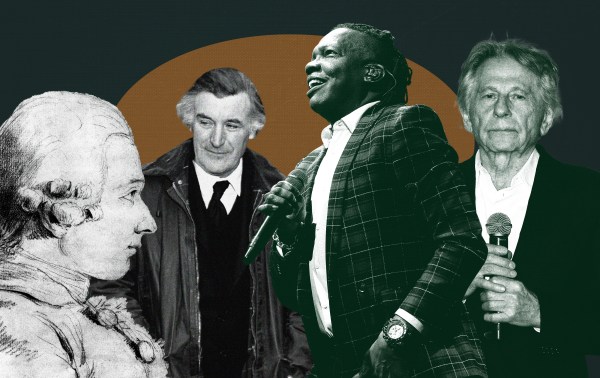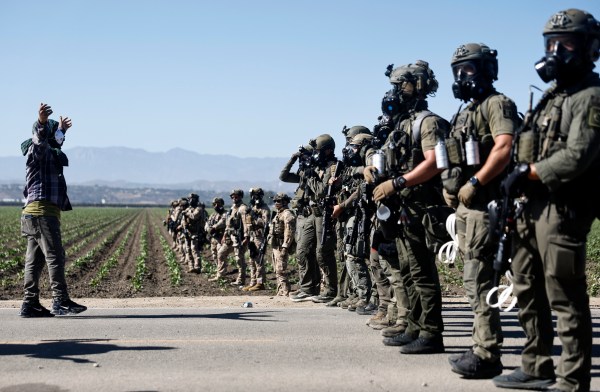The following is adapted from Broken News: Why the Media Rage Machine Divides America and How to Fight Back from Center Street Books, available in bookstores on Tuesday or online now.

There are many ways we could describe our era. It is the information age, early-onset idiocracy, the rise of the authoritarians, etc., etc., etc. We won’t know the truth until the age is over.
But to me, we live in the age of anxiety. Americans got nearly ten million prescriptions for potent anti-anxiety drugs like Klonopin and Ativan in March 2020. In the same month, there were almost thirty million prescriptions for antidepressants, also often used to combat anxiety. And while the American Psychiatric Association’s annual survey found that our worries on a host of subjects retreated in 2021 from all-time highs in 2020, we are way, way more worried compared to the recent past. Many of these worries are intensely personal, but others are dislocated societal or political concerns being experienced as personal anxiety. And that’s no good.
There’s so much anger in our culture today, and you can’t hate something you aren’t afraid of. We are an angry people because we are a frightened people. Politicians, popular culture, the news media, and leaders of major institutions speak in a language of anxiety, and did so long before our now-receding pandemic began. It wouldn’t be so odd if it weren’t for the fact that things are so much better here and now than they’ve been for most of human existence: freer, richer, safer, cleaner, and easier. Yet somehow endlessly problematic and anxiety-inducing.
There are a lot of reasons for this mismatch. But part is surely a result of media overconsumption—panicky pulp produced to shovel at you in order to hold an audience in a fragmented marketplace. All day, every day, you are offered an unlimited array of serious worries about which you can do next to nothing.
Piling up the unpaid bills of worry creates problems for us personally, yes. But it also is behind our nation’s serious collective-action problem. Obsessive concern about problems mostly beyond our control can prevent us from taking action on the ordinary, important work institutions are supposed to do. If the spending bill is really the last hope of a dying planet, then we can’t have the right conversation about how much to spend and for how long. Overhyped anxiety also distracts us. If you’re running a “forensic audit” looking for ballot boogeymen, you can’t do your job as a state official. Exaggerated, dislocated anxieties, even when sincere, are keeping us from our real work.
Then there’s burnout. In an era where everything is a crisis, then nothing really is one. How many overhyped panics do we expect Americans to endure before reaching the rational conclusion that the news media, their politically addicted peers, and institutional leaders have lost all perspective? The boy who cried wolf is clogging your Facebook feed with global warming or vaccine memes and hollering about murder hornets on TV. The next step is to pop a Xanax and tune out.
We hear constantly about the need to “raise awareness,” but in the age of anxiety, all this awareness is proving paralytic. We’d all do better to try to live our lives as best we can and let the consequences follow.
That doesn’t mean that there might not be a climate crisis. Or a democracy crisis. Or a decency crisis. Or an education crisis. Or a mental health crisis. Or a debt crisis. Or an obesity crisis. Or whichever of the dozens of problems we hear are emergent, dire, and demanding our full attention. Because the next week or month or year will make all the difference. Remember: This is the most important election of all time …
But as Roger Ailes once said of Glenn Beck after the departure of the zany apocalyptist from Fox News, “The problem with predicting the end of the world every day is that sooner or later, you have to deliver.”
Especially because reporters and the outlets where they work tend to overstate the severity of the problems they cover, issue-oriented news tends to be pretty depressing. It goes against the business model of most news outlets as well as human nature to tell audiences, “Don’t worry too much about it, but here’s a story you might be interested in.” If you want people to click your link or not change the channel, you have to make the story compelling. Alas, the easiest way to make a boring story compelling is to exaggerate the potential consequences. The cumulative effect is for news consumers to despair and ultimately tune out completely.
That’s why you need to keep the apocalypse low-key and available for sponsorships. It’s back there providing that thrum, but also imparting legitimacy to the rest of what you’re doing. Here’s where journalists perform a neat bit of legerdemain. They turn their coverage of serious news into the idea that they themselves are serious people who should be afforded respect. By this trick, an overcoiffed, undereducated newsreader can demand you treat them as credible even when they are talking to an imbecilic pop star about their big breakup announcement on Instagram because in the previous segment the talking head was talking about war, pestilence, and plague.
It’s an important trick, because it’s the fluff that is the lowest-risk, highest-reward infotainment of all. To use the jargon of news consultants, it’s about “humanizing” the news. That’s great if you are trying to help readers, listeners, or viewers understand how a story might affect them personally. But most of the humanization goes in the other direction: away from ideas and toward the personification of all things. It’s good to make ideas understandable on a human scale to news consumers, but bad to anthropomorphize concepts into individual politicians. That usually means talking less about policies and more about personalities.
Think about the long, long discussion in President Biden’s first year about progressive Democrats’ proposed social welfare and environmental spending package, initially floated at $6 trillion. I can’t tell you the actual split on policy coverage versus personality coverage, but I imagine a lot more people learned that Senator Joe Manchin has a snazzy boat on the Potomac River than learned the significant details of the legislation he opposed. The story so many outlets told about a coal-state senator blocking legislation that was said to be very good for the climate was an easy sell, shifting effortlessly into why Manchin would do such a mean thing. Was he corrupt or just cynical? Little considered was the possibility that he actually believed what he was saying. You have a bad guy, the heroes trying to overcome him, and that ever-present, low-key doomsday providing the juice.
Here’s how Politico’s White House editor, Sam Stein, reacted when Manchin said he would not back the bill: “A lot to process on the Manchin news but, from a substantive standpoint, it’s just objectively devastating for the planet,” Stein tweeted. “The last best chance at climate change legislation is gone.” That’s quite a thing for one person to accomplish, devastating the whole planet by opposing $500 billion in new spending on green energy over the next decade. Manchin sounds more like a supervillain than one of one hundred senators. It’s nonsense, but it’s easier to sell than the boring, incremental truth.
The world is ending, and you really can’t do much of anything about it. But here is a savior who could protect you or a devil who is trying to hasten the Four Horsemen. This kind of coverage invites you to watch from the stands as these avatars of good and evil clash.
And it’s no surprise that personality-driven coverage attracts and rewards all of the wrong sorts of politicians.







Please note that we at The Dispatch hold ourselves, our work, and our commenters to a higher standard than other places on the internet. We welcome comments that foster genuine debate or discussion—including comments critical of us or our work—but responses that include ad hominem attacks on fellow Dispatch members or are intended to stoke fear and anger may be moderated.
With your membership, you only have the ability to comment on The Morning Dispatch articles. Consider upgrading to join the conversation everywhere.